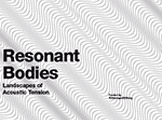June 13-15, ICI Berlin, Germany

The People's Microphony Songbook will be featured at this upcoming conference:
http://www.ici-berlin.org/event/532/
Conference Description:
When a solid body meets its natural resonant frequency, it violently vibrates and breaks into pieces. What happens when the human body meets its resonant frequencies? Mostly a combination of soft tissue and water, the human body is not one solid object. It includes a variety of molecules each of which has a different resonant frequency. Yet the soft tissue and water do not allow these molecules to be completely destroyed. Instead, the human body’s liquidity and elasticity perpetuate the fundamental principle of acoustic resonance: holding a multitude of similar frequencies neither as precisely same nor as perfectly different. For the very same reason perhaps, the human body is involved in a constant reciprocity with its sonic environment. Knowingly or unknowingly, it vibrates with multiple other bodies. Without any necessary physical contact, it matches its resonant frequencies from a distance. Acoustic resonance draws a particular proximity between one’s physical location and his/her phenomenal extension to another.
Consider this proximity acoustic tension, a case of mental distance despite the physical closeness, and equally, a case of mental closeness despite the physical distance. Then picture acoustic resonance as a landscape of acoustic tension, a horizontal spectrum of multiple modalities of sounds, which do coincide with one another but which do not necessarily become one. The very act of hearing holds the acoustic tension. When we hear a sound, we are simultaneously moved to and positioned in a place. What happens if acoustic tension is heightened, if we pay close attention to the intensity and volume of sound? What would be the material effects of such sonic embodiment in everyday life? What kind of subjectivity does it enact? What kind of an epistemology does acoustic tension evoke, mirror and transform? And how do our resonant bodies function in understanding the self’s relation to its external world? The symposium will explore these questions by marking three landscapes of acoustic tension: sensory ecologies of hearing, materiality of voice, language and speech, and affective states of sound.
Time: 13-15 June 2013
Venue: ICI Berlin
Organizers:
Zeynep Bulut (ICI Berlin)
Claudia Peppel (ICI Berlin)
Brandon LaBelle (Bergen Academy of Art and Design)
Funded by:
VolkswagenStiftung